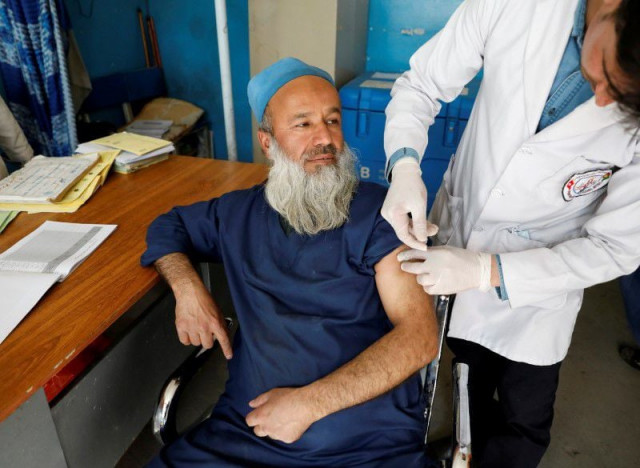Full hospitals in Afghanistan close doors to new patients as Covid-19 surges
The official says two hospitals, both in Kabul, were facing persistent shortages of oxygen & other medical supplies

The two main hospitals treating people with Covid-19 in Afghanistan have had to close their doors to new patients because of a lack of beds, a senior health official and doctors said on Monday.
Afghanistan is grappling with a third wave of the pandemic, with a record number of infections and deaths being reported amid a surge in violence as US-led international forces withdraw and Taliban insurgents go on the offensive.
"Both Afghan Japan and Ali Jinnah hospitals had to close their doors because they had no more beds or resources," the health official said on condition of anonymity as they were not authorised to speak publicly about the matter.
The official said the two hospitals, both in the capital Kabul, were facing persistent shortages of oxygen and other medical supplies.
Mirwais Alizay, deputy health ministry spokesperson, said hospitals had close sometimes due to higher patient numbers but he denied that hospitals were facing serious shortages of supplies, saying issues with oxygen had been solved.
Masi Noori, a doctor at Afghan Japan hospital, said it had been closed to new patients for several days because it had run out of beds.
Eid Wali, head of Ali Jinnah hospital, said it had to stop taking new patients when its Covid-19 beds were full. It let in new patients as beds become free.
"We only have 50 beds for Covid cases, that's the main problem," Wali told Reuters.
Afghanistan reported on Monday 1,804 new Covid-19 cases and 71 deaths from the disease.
In all, it has had 93,272 cases and 3,683 deaths but doctors say many cases are likely being missed because of low rates of testing.
Human rights group Amnesty International said last week the government needed to immediately procure more oxygen and vaccines.
"Afghanistan's Covid-19 case numbers have been steadily increasing," said Zaman Sultani, the group's South Asia researcher. "Without urgent international support to contain this surge, the situation could quickly spiral out of control."
The country, with a population believed to be about 36 million, has administered about 1 million doses of vaccine, largely to front-line health workers and members of the security forces.
Last week, Afghanistan received 700,000 doses of a Covid-19 vaccine made by China's Sinopharm.


















COMMENTS
Comments are moderated and generally will be posted if they are on-topic and not abusive.
For more information, please see our Comments FAQ